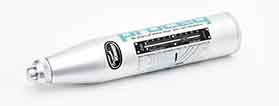
The quality of concrete is mainly judged by its compressive strength directly affecting the load-bearing capacity and durability of concrete structures. Proceq invented the Original Schmidt, the world’s first and now most widely used test hammer for analyzing the compressive strength of concrete properties.
The Original Schmidt will hit the concrete at a defined energy whereas its rebound is dependent on the hardness of the concrete and is measured by the instrument. The Original Schmidt is available in models with different impact energies, each test hammer designed for a specific test application, in order to meet the needs of the customers to investigate a wide range of material types and sizes, such as bridge decks, thin walls, cast stone components or small components.
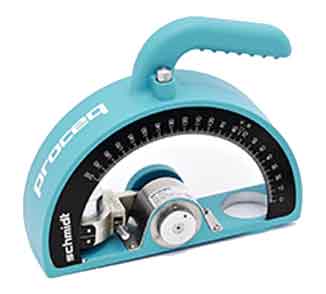
The Schmidt OS-120 Pendulum Hammers are designed to test on softer material such as light weight concrete, gypsum boards, fresh concrete and the mortar of joints in brickwork. Their unique design allows easy to handle measurements on vertical and horizontal surfaces.
Schmidt OS-120 is the only rebound hammer worldwide working with the pendulum system, thus it must not be loaded on the test surface. The larger plunger surface on the Schmidt OS-120PT allows tests on soft concrete starting with a compressive strength of 1 MPa.

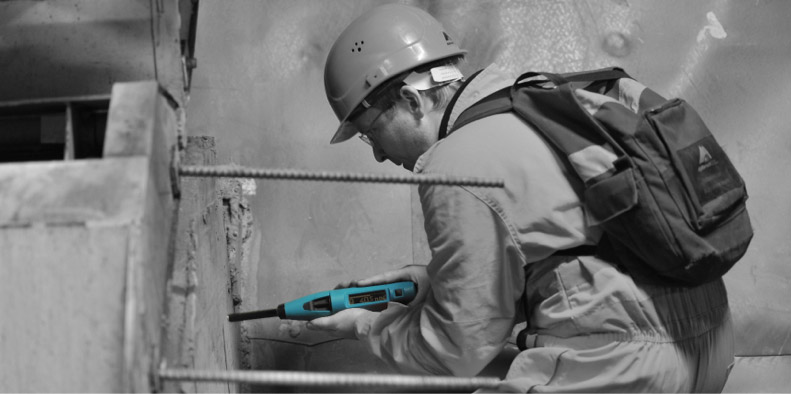
The SilverSchmidt ST/PC is the first integrated concrete test hammer featuring true rebound value and unmatched repeatability. Two factors contribute to the improved performance of this concrete test hammer over its predecessors:
Independent validation testing by BAM (Federal Institute for Materials Research and Testing, Germany) has shown the SilverSchmidt ST/PC to have less dispersion than the classical concrete test hammer over the entire range. The unique design and high quality construction of the concrete test hammer SilverSchmidt ST/PC makes rebound hammer testing quicker and more accurate than ever before.
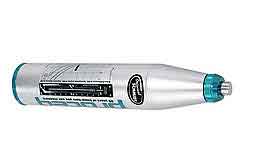
The Proceq rebound hammer is a device to measure the elastic properties or strength of concrete or rock. Each rebound hammer is built for a different purpose in order to meet the specific needs of the customer.
Proceq invented the world’s first and now most widely used equipment for analyzing concrete strength properties, the Original Schmidt. This rebound hammer is available in models with different impact energies, each designed for a specific test application.
The SilverSchmidt ST/PC is the latest generation of rebound hammer combining the ground breaking features of the OriginalSchmidt with the best of today’s technology. It’s the first integrated rebound hammer featuring true rebound value and unmatched repeatability.
Besides showing the basic settings on the included display unit, the rebound hammer DigiSchmidt offers the transmission of the measured data to a standard printer or to a PC. The window based software ProVista allows downloading, presenting and editing of the measured values in a fast and easy way. This rebound hammer is menu-guided in different languages.
The rebound hammer meets the customers' needs for in-situ measurement of concrete quality and compressive strength.
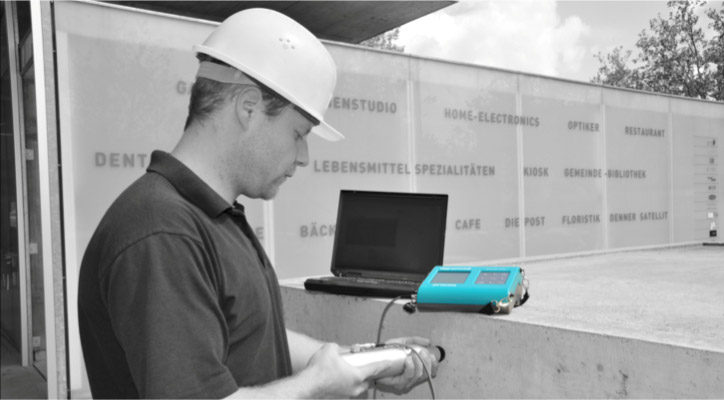
The Schmidt Hammer Digi-Schmidt was developed for the non destructive measurement of the concrete compressive strength and controlling the uniform concrete quality.
Besides showing the basic settings on the included display unit, the Schmidt Hammer offers the transmission of the measured data to a standard printer or to a PC. This supersedes the time consuming business of note taking allowing the user to focus on the essential. The window based software ProVista allows downloading, presenting and editing of the measured values in a fast and easy way.
The Schmidt Hammer is equipped with a sensor which measures the rebound value of a test impact to high resolution and repeatability. With the Schmidt Hammer, various parameters such as impact direction, form factor and time factors such as carbonation depth can easily be set.